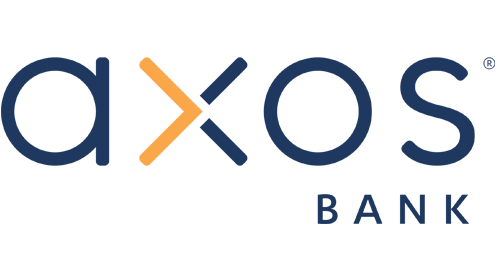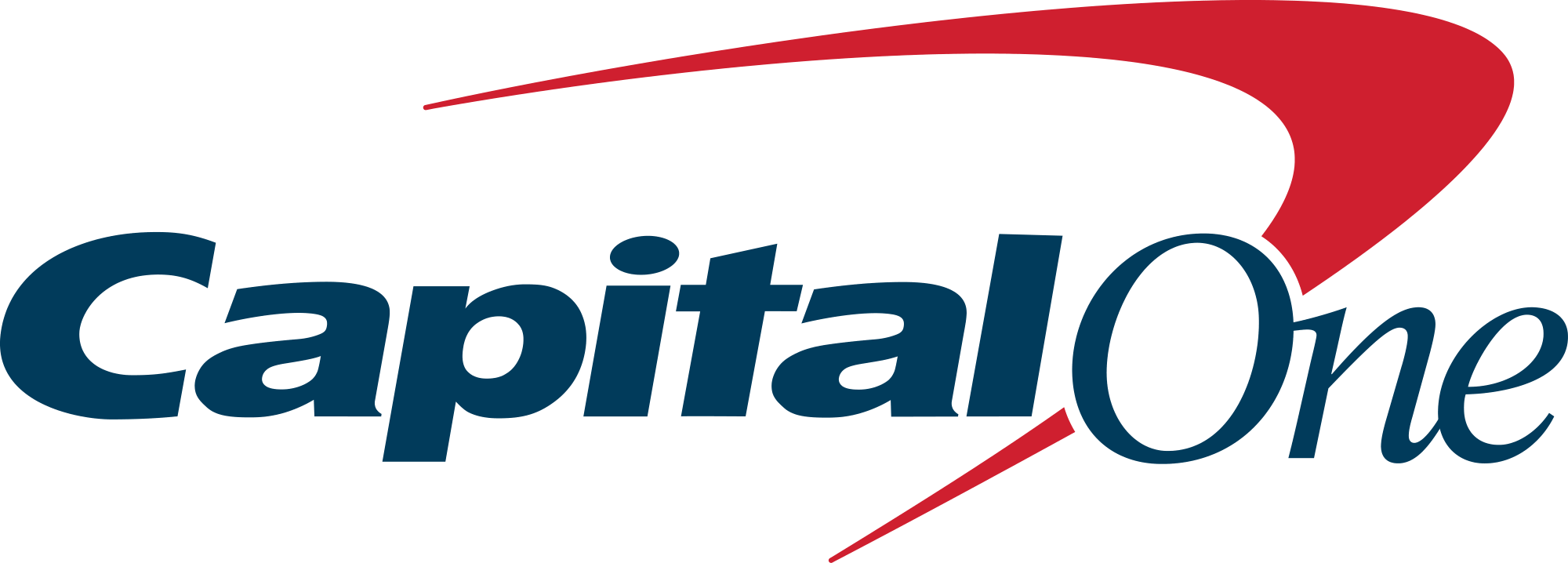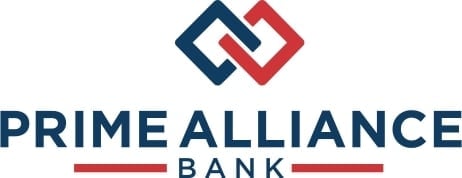Best Business Savings Accounts of 2025
Many, or all, of the products featured on this page are from our advertising partners who compensate us when you take certain actions on our website or click to take an action on their website. However, this does not influence our evaluations. Our opinions are our own. Here is a list of our partners and here's how we make money.
Why trust NerdWallet
| Product | APY | Monthly Fee | Bonus Amount | Minimum Deposit | Learn more |
|---|---|---|---|---|---|
 Axos Business Premium Savings Account NerdWallet Rating Learn more at Axos Bank®, Member FDIC | 3.80% With $0.01 min. balance for APY | $0 | $375 Requirements to qualify | $0 | Learn more at Axos Bank®, Member FDIC |
 Live Oak Bank Business Savings NerdWallet Rating Learn more at Live Oak Bank, Member FDIC | 3.35% With $0.01 min. balance for APY | $0 | N/A | $0 | Learn more at Live Oak Bank, Member FDIC |
 Grasshopper Business Innovator Savings Account NerdWallet Rating Learn more at Grasshopper Bank, Member FDIC | 3.55% With $25,000 min. balance for APY | $0 | N/A | $25,000 | Learn more at Grasshopper Bank, Member FDIC |
 Capital One Business Advantage Savings NerdWallet Rating Learn more at Capital One, Member FDIC | 3.70% With $10,000 min. balance for APY | $3.00 Waived with $300 minimum balance | N/A | $10,000 | Learn more at Capital One, Member FDIC |
 nbkc bank Business Money Market Account NerdWallet Rating Learn more at nbkc bank, Member FDIC | 2.75% With $0.01 min. balance for APY | $0 | N/A | $0 | Learn more at nbkc bank, Member FDIC |
 Platinum Business Money Market Account NerdWallet Rating Learn more at U.S. Bank, Member FDIC | 3.56% | $15.00 Waived with $10,000 minimum balance | N/A Requirements to qualify | $0 | Learn more at U.S. Bank, Member FDIC |
 First Internet Bank Business Money Market Savings NerdWallet Rating Learn more at First Internet Bank, Member FDIC | 3.46% With $0 min. balance for APY | $5.00 Waived with an average daily balance of $4,000 | N/A | $0 | Learn more at First Internet Bank, Member FDIC |
 Live Oak Bank 12 Month Business CD Learn more at Live Oak Bank, Member FDIC | 4.10% | $0 | N/A | $2,500 Member FDIC | Learn more at Live Oak Bank, Member FDIC |
 Prime Alliance Bank Business Savings NerdWallet Rating | 4.00% With $0 min. balance for APY | $0 | N/A | $0 |
NerdWallet's editorial picks: Best business savings accounts
All of our picks for best business savings accounts are chosen by our editorial team without outside input. Only accounts that earn at least 2.00% APY were eligible to be included.
Axos Business Premium Savings
Axos Business Premium Savings Account earns 3.80% APY on all balances and has no minimum opening deposit or monthly fee. Plus, you can earn a bonus of up to $375 when you open a new account using promo code BPS375. To qualify, you must maintain an average daily balance of at least $75,000 for three of the first four statement cycles (or maintain an average daily balance of at least $30,000 to earn a $225 bonus). Additional terms apply. Offer expires 09/30/2025. Account holders can opt into an Insured Cash Sweep account to extend FDIC coverage up to $240 million for no additional charge.
First Internet Bank Business Money Market Savings
First Internet Bank Business Money Market Savings has an outstanding interest rate for business owners: Earn 3.46% APY with a daily balance up to $5 million and 4.42% APY with a daily balance above $5 million. The account does have a minimum opening deposit requirement ($100) and a monthly fee ($5; Waived with an average daily balance of $4,000). If those are barriers, consider the nbkc bank Business Money Market Account.
Live Oak Business CD
Live Oak offers a 12-month business CD that earns 4.10% APY. The certificate of deposit has a minimum deposit of $2,500, and the maximum per CD is $250,000. As with any certificate of deposit, you won't be able to touch your funds for the duration without paying a penalty — making this a good choice only if you won't need these funds for a year.
Prime Alliance Bank Business Savings

Prime Alliance Bank Business Savings
4.00%
Prime Alliance Bank has a top-notch business savings account that earns between 3.60% and 4.00% APY, depending on your balance. The bank also offers an outstanding business CD that currently earns 4.35% APY for six-month terms. You need to email the bank to open an account, unless you're local to Salt Lake City and the bank’s lone brick-and-mortar location.
Live Oak Bank Business Savings
Live Oak Bank Business Savings's rate has fallen quite a bit in recent months — from 4.00% to 3.35% APY — but the online bank still offers an excellent account. Account holders can access up to $10 million in FDIC coverage through Live Oak's separate Insured Cash Sweep service, though you'll earn a slightly lower APY (accounts are otherwise protected up to the standard $250,000).
NBKC Business Money Market
The nbkc bank Business Money Market Account has no monthly fees and no minimum opening deposit requirement. This account earns 2.75% APY as long as you have a balance of at least 1 cent. Want to lock in a higher rate? NBKC offers two business CDs (7-month and 11-month terms) that currently earn 4.25% APY.
U.S. Bank Platinum Business Money Market Account
U.S. Bank's Platinum Business Money Market Account comes with an outstanding APY, if you qualify for the bonus rate: Receive a bonus interest rate up to 3.50% from the account opening date when you open a new Platinum Business Money Market Account and complete qualifying activities, subject to certain terms and limitations. Terms apply. Member FDIC. To net a bonus rate, you need a balance of at least $50,000 in your new Platinum Business Money Market Account. The promotional rate does not apply to balances of $3 million or higher.
Grasshopper Bank Innovator Savings Account
Grasshopper Bank launched its Innovator Savings Account as a standalone option in November 2024. Previously only available to Grasshopper Business Checking customers, the money market account boasts a stellar APY (3.55%), but you need to sink a good chunk of cash into the account to earn interest ($25000). That makes this account best suited to established businesses and startups with seed money, rather than sole proprietors or freelancers.
Capital One Business Advantage Savings
Capital One's business savings account offers attractive promotional rates of up to 3.70% APY. But you do have to meet some conditions.
Advertised Annual Percentage Yield (APY) is variable and accurate as of 03/13/2025. The promotional rate of 0.25% APY applies to accounts with a balance up to $9,999.99. The promotional rate of 3.70% APY applies to accounts with a balance of $10,000 to $10 million. The promotional rate of 0.10% APY applies to accounts with a balance above $10 million. Promotional interest rate expires after 3 months (92 days) at which time a variable interest rate will apply that is subject to change at any time without notice.
The promotional period lasts 92 days and then accounts revert to an ongoing variable APR. That ongoing rate was 0.10% as of Feb. 18, 2025 — quite a bit lower than some other accounts on our list.
This account has no strict transaction limit, but it also doesn't offer debit cards or checks. Consider it if you're stashing funds for a near-term expense. But if you're looking to maximize ongoing value, look for a higher ongoing APY.
🏦 Other business savings accounts to consider
These banks and fintechs offer business savings accounts with competitive APYs, but you'll need a business checking account with the same institution to open one.
Relay: Earns between 1.03% APY and 3.03% APY depending on your subscription tier — the top APY requires you to spend $90 per month for Relay's software. Still, Relay's business checking account is a terrific option for medium-sized businesses or those with multiple owners.
Lili: Earns 3.00% APY as of this writing. Must have a Lili Pro ($15/mo) business checking account or higher plan to qualify. Lili's business checking account is best suited to solopreneurs and very small businesses.
What is a high-yield business savings account?
A high-yield business savings account is a deposit account with a strong interest rate. Technically any savings account that earns more than the national average (currently 0.41%, according to the FDIC) could be considered high yield, but NerdWallet's threshold is 2.00% APY.
The best high-yield business savings accounts typically come from online-only financial institutions or neobanks (technology companies that partner with FDIC-insured banks for account services). These providers often offer better APYs because they lack the physical footprint — and thus the expenses — of brick-and-mortar banks.
Big national banks tend to have the worst accounts for earning interest. Chase and Bank of America's business savings accounts, for example, earn less than 0.05% APY as of this writing.
Pros and cons of business savings accounts
Earn interest on account balances.
Tap into potentially higher levels of FDIC insurance with Insured Cash Sweep options.
Access funds as needed with relative ease.
Will likely need to use an online bank to get highest rates possible.
Can face limits on monthly transactions.
Interest rates are variable and subject to change.
Other tools to help your business save

Business certificates of deposit (CDs)
Business CDs often offer the highest rates of any business savings tool, and that rate is locked in for your term (anywhere from a few months to a few years). Your funds are also locked up for the length of the term, though, and you'll pay a penalty to withdraw them early. See our top picks.

Business money market accounts
Funds in a business money market account are more accessible than a business savings account — you can typically write checks or use a debit card, and some even offer unlimited fee-free transactions — but in exchange, they usually have lower APYs. See our top picks.
Several online business checking accounts offer competitive APYs — right now, the highest among our top picks is North One Standard Business Checking at 2.5% APY. Checking accounts have far fewer restrictions on transfers and withdrawals than savings accounts and may be a better choice for smaller businesses with less cash on hand.
Business savings account rates for June 2025
NerdWallet looked at national, regional and online financial institutions for the following list of current rates for business savings accounts. Listed are the starting APYs for these accounts; some options may have higher rates based on your balance or relationship with the institution. Higher rates are sometimes available via business bank promotional offers, too.
Some banks don't publish current rates for their business savings accounts. Instead, you need to contact a banker for rate information. These accounts may advertise "competitive" rates, but their lack of transparency likely isn’t hiding a high yield.
Business savings calculator: How much could you earn?
How to choose a business savings account
Depending on your business’s financial needs, here are some factors that you may want to consider — on top of the interest rate — to help you choose a business savings account:
Minimum opening deposit: How much does it cost to open the account? These requirements can range, but you’ll want to make sure that you have enough money set aside to open the account.
Monthly fees: Is there a monthly fee associated with maintaining the account? Ideally, your business savings account will have low or no fees.
Minimum balance requirement: Is there a minimum account balance required to earn the APY? This term might also be used in reference to monthly fees: Is there a minimum account balance required to waive any monthly maintenance fees associated with the account? Make sure that you can sustain minimum balance requirements on an ongoing basis to avoid losing out on interest or, conversely, incurring monthly fees.
Monthly withdrawals or transfers: Although the Federal Reserve removed the requirement that imposes a six-per-month maximum on withdrawals from savings accounts in April 2020, many banks and credit unions continue to enforce these limits. In some cases, excessive withdrawals may result in your business savings account being transferred to a business checking account.
Level of FDIC insurance: The Federal Deposit Insurance Corp. protects up to $250,000 per depositor, per financial institution. Will you keep more than that in your business savings account? If so, look for options that expand coverage via Insured Cash Sweep. These accounts spread deposits across multiple insured institutions to increase FDIC protection. For instance, Relay offers up to $2.5 million in FDIC insurance.
ATM access: Is a business debit card or ATM card included with your savings account? And if so, where can you use it? Live Oak Bank Business Savings doesn't include ATM access, for example, but nbkc bank Business Money Market Account holders get fee-free access to more than 37,000 MoneyPass ATMs nationwide.
How to open: Consider how convenient it is to open a business account. Many of our picks for best business savings accounts let you open your account online, but other small-business banks may require you to open your account in person at a local branch.
Methodology
NerdWallet rates business savings and money market accounts on more than a dozen factors, including monthly fee, APY, funds accessibility and access to enhanced FDIC coverage via Insured Cash Sweep networks. Customer support availability, website usability and other account features and restrictions also play a role in out overall rating. Learn more about how NerdWallet rates business bank accounts.
On this page








